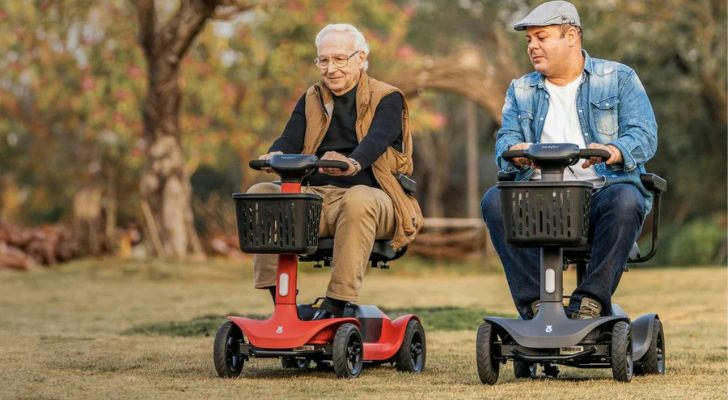Comprehensive Guide to Obtaining the Right Electric Mobility Scooter Through Medicare
Many individuals with limited mobility rely on electric mobility scooters to maintain independence and manage daily activities. However, navigating the process of obtaining the right equipment through Medicare can be complicated. This article provides a detailed overview of Medicare coverage, the application process, and important considerations to help secure the appropriate support efficiently.

Medicare Coverage Conditions and Cost Responsibilities for Electric Mobility Scooters
Medicare Part B covers power-operated vehicles such as scooters and wheelchairs when they are deemed durable medical equipment (DME). To qualify, a doctor must submit a written order confirming a medical need for the device at home. Eligibility requires that the patient has limited mobility caused by a health condition, resulting in significant difficulty performing daily activities despite using aids like canes or walkers. The patient must also be able to safely operate and get on and off the device, either independently or with assistance. Both the prescribing doctor and the DME supplier must participate in Medicare and accept assignment, meaning they agree to bill Medicare directly and accept Medicare’s approved amounts. Once the deductible is met, patients typically pay 20% of the approved cost. If suppliers are not enrolled or do not accept assignment, patients might face full payment out of pocket. Medicare Advantage plan members should check specific plan rules for approved suppliers and costs.
Different Types of Mobility Devices and Choosing the Right One
Medicare covers several types of mobility devices to suit varying needs. Manual wheelchairs are ideal for individuals who cannot safely use canes or walkers but have sufficient upper body strength or assistance to propel the chair. These may sometimes require rental before purchase. Power-operated vehicles or scooters are designed for people unable to use manual devices and who can safely operate controls and transfer on and off. Power wheelchairs are reserved for those who cannot use manual wheelchairs at home or do not meet power scooter qualifications. Selecting the right device depends on mobility limitations, strength, and the ability to safely manage the equipment.
Doctor’s Examination and Prior Authorization: A Step-by-Step Application Guide
Before obtaining a power wheelchair or scooter, a face-to-face examination with a doctor is mandatory to assess medical necessity and the patient’s ability to use the device safely. After the exam, the doctor submits a written order to Medicare. Certain power wheelchairs and scooters require prior authorization, meaning the supplier and healthcare provider must work together to submit necessary documentation for Medicare review. Medicare evaluates eligibility and medical justification before approving the equipment, which ensures appropriate devices are provided and reimbursed.
Common Power Wheelchair and Scooter Models Requiring Prior Authorization and Their Features
Certain models of power wheelchairs and scooters require prior authorization due to their specifications and weight capacities. For sling or solid seat/back power wheelchairs, models vary by weight capacity from standard (up to 300 lbs) to extra heavy duty (601 lbs and above). Captains chair models, which offer additional comfort and support, include both portable and non-portable versions across similar weight categories. Power-operated vehicles, or scooters, also fall into different groups based on weight capacity and design. These classifications help Medicare determine the appropriate device type and ensure medical necessity is met for heavier or more specialized equipment.
Handling Denials, Appeals, and Preventing Medical Equipment Fraud
After submitting prior authorization requests, Medicare sends decision letters to the DME supplier. Denials can occur if Medicare lacks sufficient information or finds no medical necessity. Suppliers may resubmit requests with additional documentation, and patients have the right to appeal denied claims. Detailed information on filing appeals is available through official Medicare resources. To avoid medical equipment fraud, patients should be cautious of offers that include waived copayments, cash payments, or orders from unfamiliar doctors. Keeping thorough records of medical visits and equipment received, and reviewing Medicare Summary Notices carefully, helps identify potential fraud. Suspected cases can be reported through designated Medicare channels, ensuring protection and accountability.
This guide aims to empower individuals with clear, practical knowledge to navigate Medicare’s process for obtaining electric mobility scooters, ensuring access to suitable and medically necessary devices that support independent living.
